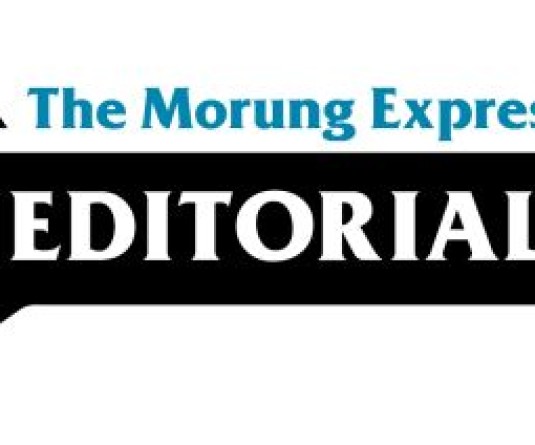
Political, Social and Economic Justice and Ecological Sustainability have become the central rallying points to restore Development, Liberation, Transformation and Self-Determination at the core of peoples’ struggles once again. Development begins with strengthening the praxis to reclaim the values of freedom, dignity and the freedoms of all fellow beings since therein lies the indivisibility of justice, peace and sustainability - without sustainability and equal access and sharing there is no justice, and without justice there can be no peace.
Human societies have now come to grasp the fact that political ownership and economic ownership cannot be separated. The people cannot say that they own the economic institutions if they do not at the same time have ownership of the political institutions through which they choose their own leaders and derive economic policies based. Paulo Freire says, “Transformation is only valid if it is carried out with the people, not for them. Liberation is like a childbirth and a painful one. The person who emerges is a new person, no longer oppressor or oppressed but a person in the process of achieving freedom. It is only the oppressed who by freeing themselves can free their oppressor.”
Therefore all processes of development must be people oriented that would enable them to realize their aspirations. Development is an awakening process – ways in which people recognize themselves and awaken to strive for their right to live as human beings to their fullest potential. In order to achieve lasting and real changes, we need to understand development as a more inclusive concept, which must be viewed and approached from the perspective of peoples. Developmental notion of justice is about taking less and about changing the lifestyle of the rich elites and those in power and about empowering the poor and oppressed people to claim their rightful place with dignity.
Development, liberation, self-governance and transformation are all central aspect of the same process that is at the core of creative human living and human survival. But what happens when development is taken out of this process and relocated outside the context of humanity. In situations where people are living in poverty, have been dehumanized and their dignity stripped away the process of regaining humanity and dignity becomes the most crucial and critical educational initiatives for development. It involves the process of engaging and transforming systems through critical assessment and critical thinking in order to create critical consciousness.
Schumacher says that the root of what is wrong with us is a failure of thinking of values. The solution likes in us. We are our own impetus for progress. Progress lies not first in the teaching of how to make or build or the knowledge of simple facts, but in how to live. Transformation and development cannot take place in structures and procedures where decisions are allowed to wend their leisurely way up and down the hierarchy. Having rigid structures and hierarchies become self-defeating because it slows up responsiveness and stability.
Development must be through participation of people where people learn by doing and by reflecting on their own work. It requires that people must identify their own problems, analyze critically the root causes of the problems and develop strategies to effect positive changes in their lives and in their communities. In essence people must have ownership of the process, the objectives and the steps towards realizing it. It begins with developing people’s minds and capacities so that they can first regain a measure of dignity, ownership and make decisions over their immediate environment. Humanity and wisdom must be at the core of the process. There is an urgency for development to be rooted and founded on indigenous thinking, worldview and knowledge system – a worldview that embraces life and guides humanity through democratic participation. Development as Transformation
Political, Social and Economic Justice and Ecological Sustainability have become the central rallying points to restore Development, Liberation, Transformation and Self-Determination at the core of peoples’ struggles once again. Development begins with strengthening the praxis to reclaim the values of freedom, dignity and the freedoms of all fellow beings since therein lies the indivisibility of justice, peace and sustainability - without sustainability and equal access and sharing there is no justice, and without justice there can be no peace.
Human societies have now come to grasp the fact that political ownership and economic ownership cannot be separated. The people cannot say that they own the economic institutions if they do not at the same time have ownership of the political institutions through which they choose their own leaders and derive economic policies based. Paulo Freire says, “Transformation is only valid if it is carried out with the people, not for them. Liberation is like a childbirth and a painful one. The person who emerges is a new person, no longer oppressor or oppressed but a person in the process of achieving freedom. It is only the oppressed who by freeing themselves can free their oppressor.”
Therefore all processes of development must be people oriented that would enable them to realize their aspirations. Development is an awakening process – ways in which people recognize themselves and awaken to strive for their right to live as human beings to their fullest potential. In order to achieve lasting and real changes, we need to understand development as a more inclusive concept, which must be viewed and approached from the perspective of peoples. Developmental notion of justice is about taking less and about changing the lifestyle of the rich elites and those in power and about empowering the poor and oppressed people to claim their rightful place with dignity.
Development, liberation, self-governance and transformation are all central aspect of the same process that is at the core of creative human living and human survival. But what happens when development is taken out of this process and relocated outside the context of humanity. In situations where people are living in poverty, have been dehumanized and their dignity stripped away the process of regaining humanity and dignity becomes the most crucial and critical educational initiatives for development. It involves the process of engaging and transforming systems through critical assessment and critical thinking in order to create critical consciousness.
Schumacher says that the root of what is wrong with us is a failure of thinking of values. The solution likes in us. We are our own impetus for progress. Progress lies not first in the teaching of how to make or build or the knowledge of simple facts, but in how to live. Transformation and development cannot take place in structures and procedures where decisions are allowed to wend their leisurely way up and down the hierarchy. Having rigid structures and hierarchies become self-defeating because it slows up responsiveness and stability.
Development must be through participation of people where people learn by doing and by reflecting on their own work. It requires that people must identify their own problems, analyze critically the root causes of the problems and develop strategies to effect positive changes in their lives and in their communities. In essence people must have ownership of the process, the objectives and the steps towards realizing it. It begins with developing people’s minds and capacities so that they can first regain a measure of dignity, ownership and make decisions over their immediate environment. Humanity and wisdom must be at the core of the process. There is an urgency for development to be rooted and founded on indigenous thinking, worldview and knowledge system – a worldview that embraces life and guides humanity through democratic participation.





